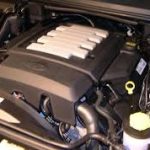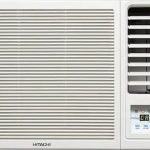In the world of automotive enthusiasts, few things ignite passion like the roar of a powerful engine. Whether it’s the purr of a finely tuned classic or the growl of a modern marvel, engines are the heart and soul of any vehicle. But what happens when that heart starts to falter? Do you replace it entirely, or is there another option?
Enter reconditioned engines – the unsung heroes of automotive restoration and repair. Often overshadowed by brand new engines, reconditioned powerhouses offer a compelling alternative that combines performance, affordability, and sustainability. In this blog, we’ll explore why reconditioned engine deserve a closer look and how they can breathe new life into your vehicle.
What Are Reconditioned Engines?
Reconditioned engines, also known as rebuilt or remanufactured engines, are essentially refurbished powerplants that have been restored to like-new condition. Unlike brand new engines, which are manufactured from scratch, reconditioned engines start with a core engine block that has been thoroughly inspected and cleaned. From there, worn or damaged components are replaced with new or remanufactured parts, ensuring optimal performance and reliability.
The Benefits of Reconditioned Engines
Cost-Effectiveness
One of the most significant advantages of opting for a reconditioned engine is cost-effectiveness. While a brand new engine can be prohibitively expensive, especially for older or rare vehicles, reconditioned engines offer a more budget-friendly alternative. By salvaging the core components and replacing only what’s necessary, reconditioned engines provide substantial savings without compromising on quality.
Performance and Reliability
Contrary to popular belief, reconditioned engines can offer performance and reliability on par with their brand new counterparts. In many cases, rebuilt engines undergo rigorous testing and quality control measures to ensure they meet or exceed OEM standards. Additionally, the use of high-quality components and precision machining techniques can result in improved durability and longevity, giving you peace of mind on the road.
Environmental Sustainability
In an era increasingly focused on sustainability, reconditioned engines offer a greener alternative to buying new. By extending the lifespan of existing engine blocks and recycling components, reconditioned engines help reduce waste and minimize environmental impact. Furthermore, the energy and resources saved in the remanufacturing process contribute to a more sustainable automotive industry overall.
Is a Reconditioned Engine Right for You?
While reconditioned engines offer numerous benefits, they may not be the ideal solution for every situation. Factors such as the condition of your vehicle, your budget, and your performance requirements should all be considered before making a decision. Consulting with a trusted mechanic or automotive expert can help you weigh the pros and cons and determine whether a reconditioned engine is the right choice for your needs.
Conclusion
In the world of automotive restoration and repair, reconditioned engines represent a compelling blend of performance, affordability, and sustainability. By breathing new life into old engines and offering a cost-effective alternative to buying new, reconditioned engines have earned their place as a valuable resource for enthusiasts and everyday drivers alike. So, the next time your vehicle’s heart is in need of revival, consider the power of a reconditioned engine – it may just be the perfect solution you’ve been searching for.










